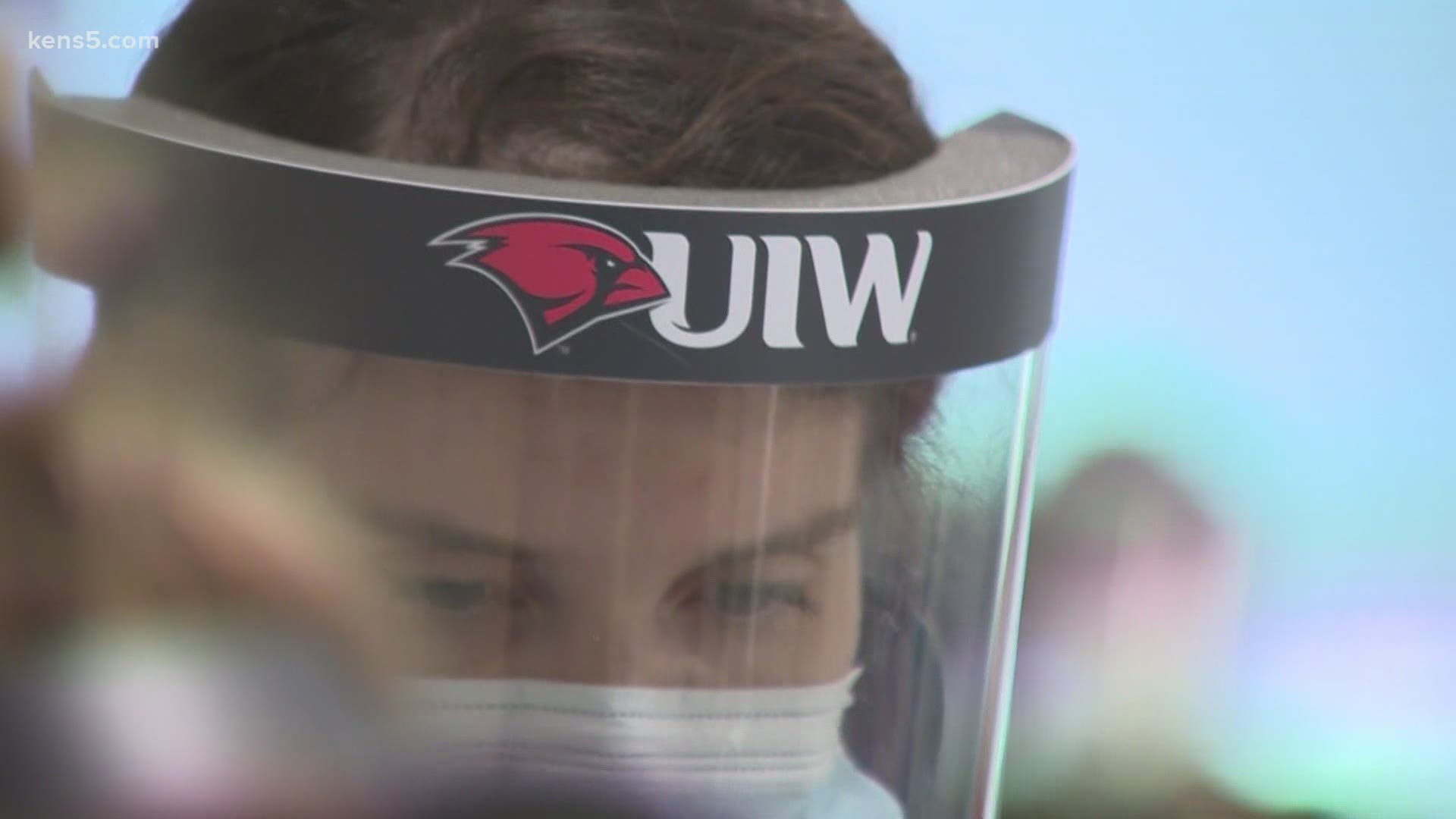COMMERCE STREET | New UIW program could help alleviate critical nursing shortage
If we didn’t appreciate it before COVID-19 – we know it now - nurses are healthcare heroes. But, studies show by 2032, Texas may not have enough nurses in the state.
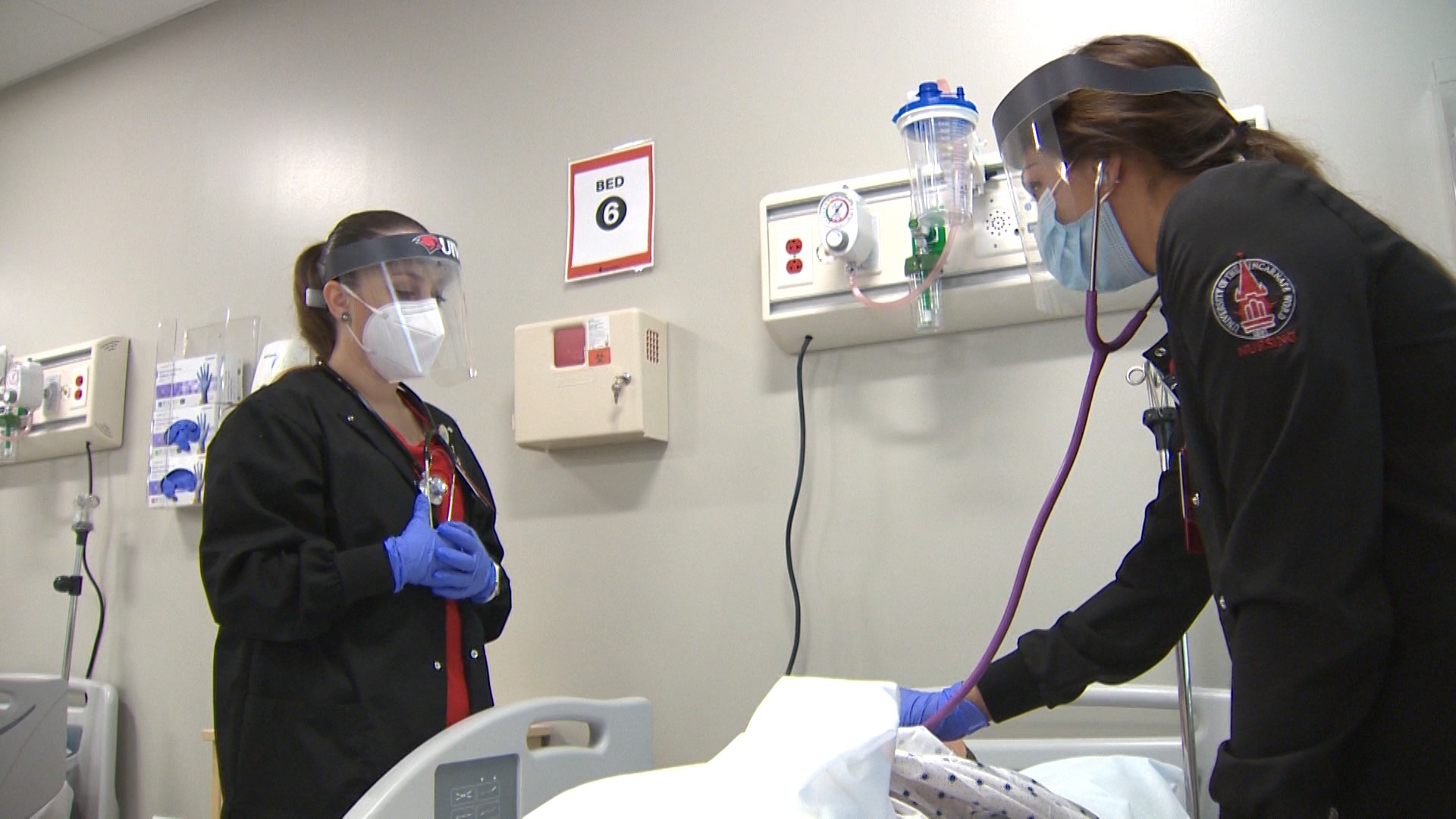
The coronavirus pandemic underscored the critical importance of nurses and nursing staff, as they gave support and comfort to patients isolated because of the illness, isolated from their own families and put their own health at risk to save the lives of others. They have also offered compassion and companionship in the final moments of patients' lives.
If we didn’t appreciate it before – we know it now - nurses are healthcare heroes. But studies show by 2032, Texas won’t have enough nurses to care for everyone who needs them – unless something changes.
In this episode of Commerce Street, a business podcast from KENS 5, we’re talking about a projected shortage of nurses in Texas that could affect care – and one measure being taken to prevent it.
Unique approach "We start with the healthy individual"
The Texas Center for Nursing Workforce Studies says our state will need at least 60,000 more nurses and nursing staff workers than we’re expected to have. That’s based on the demand for healthcare – and the number of nurses entering versus leaving the workforce.

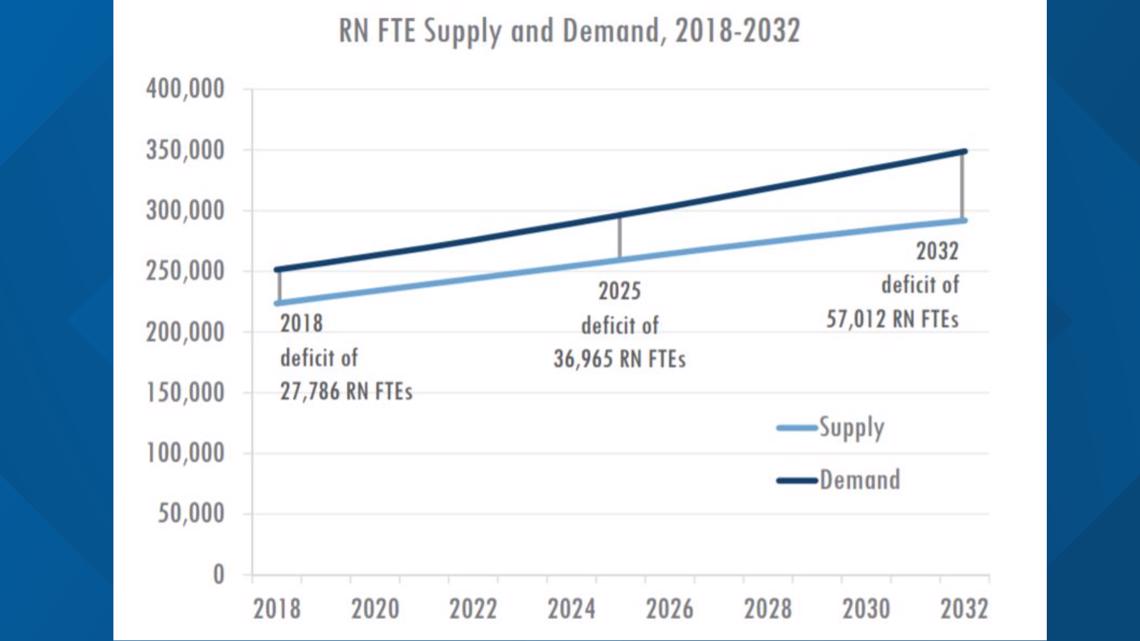
It's one reason why San Antonio schools like the University of the Incarnate Word are taking action and trying to make it easier for people considering the profession - to make it a reality. This year, UIW's Ila Faye Miller School of Nursing and Health professions launched its new “Accelerated Bachelor of Science in Nursing”- helping students get on the job sooner while still getting the lessons they need to do it.
“It’s a 16-month program and it's for students that already have a degree. So these students already have a Bachelor of Science, or a Bachelor of Arts. They must meet the criteria,” said Yvonne Davila, the Accelerated Bachelor of Nursing Degree Director at UIW.
Davila says the program combines e-learning and simulations with clinical rotations at top San Antonio hospitals and local clinics. Consistent with the school's mission, UIW also takes a community care approach to education.
"It gives them the idea of what a patient may be experiencing at home or in the community," said Dr. Donna Hedges, Director of Nursing Services. "As the student begins to lay the foundation, they get into those clinical rotations."
The students first work with patients outside the hospital at wellness fairs, shot clinics and other health outreach events -- giving students a chance to see the patient’s experiences in their home and community.
“We start with a healthy individual," Davila said. "The students learn how to communicate and everything about the healthy individual, so they focus on outcomes. That’s what they’re really learning. So, when they care for an individual in the hospital, they would’ve had experience with that.”
A good fit "We're going to get this done"
Erica Valadez is one of the students in the program. She was inspired after her personal experience with a dedicated nurse to dive into the field and has found a good fit with UIW's accelerated approach.
"It was with my third child, my son," Valadez said. "He just turned two in September and while I was in the hospital, I had a great experience with the lactation consultant. She really set me up. I wanted to breastfeed for 18 months and it was a goal. And, I was able to reach it because of her. Because of her education at first, and just her endurance the first few days. She was there with me and she said, 'Hey we’re going to get this done and don’t just back down, and I have the resources.' It made had a big impact on me.'"

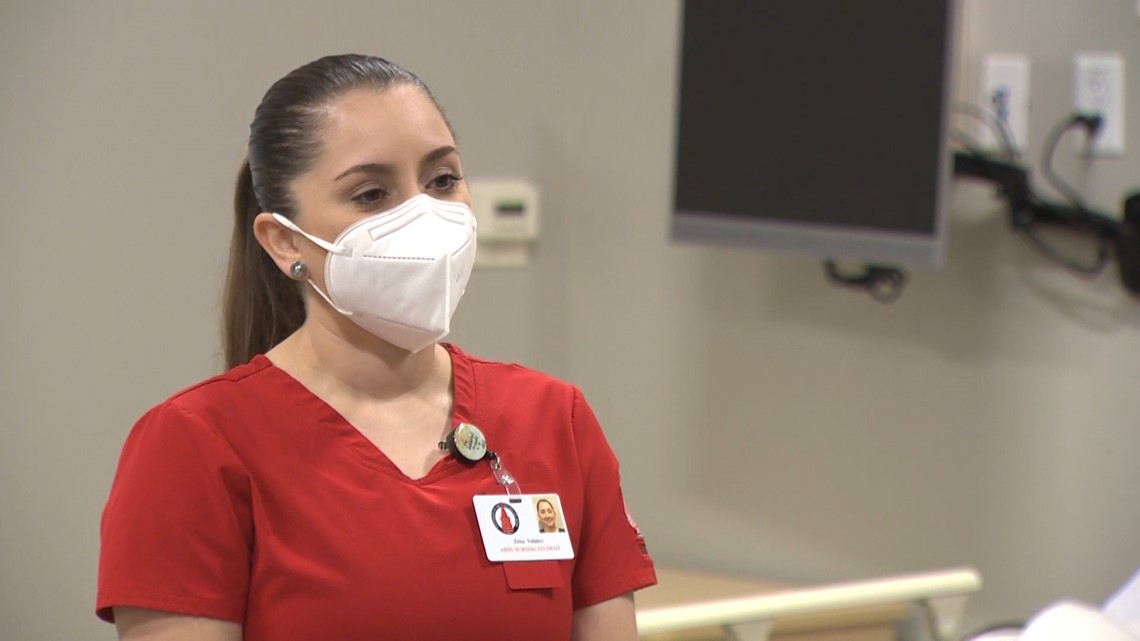
The program expands on previous college coursework for students looking to transition from one career to another.
"I have a degree already," Valadez said. "I am coming from the world of accounting, so I got a business degree to begin with. So, I decided on the accelerated program because after you spend so much time in school you kind of feel, 'Do I need to go back to school? Do I want to go back to school?' It was just one of those things that I thought, 'Wow I can go sooner, I can go faster.' And those kinds of things stood out to me. So, once I figured out the ABSN program and the prerequisites that I needed and how to get there, it just seemed like a better choice."
School of Nursing and Health Professions Dean Dr. Holly Cassells says it's a fit for San Antonians that know they want to go into nursing, but already have career or educational experience.
"They are more independent, they’ve got full lives with children so we kind of acknowledge that a lot more in this program," Dr. Cassells said. "We do have them come in and test, we do have them come in for hands-on simulations, because while there are some programs that do it distance-wise, we feel they need to interact with professional nurses who can show them how to do all these procedures they need to do."
It is a hybrid- you need to be in San Antonio or the vicinity so you can do clinicals, come in and test, come in and do labs- but the rest of the work is self-directed and students are on their own."
Students get hands-on experience early on in the program.
"The first whole semester is really focused on community based experiences while they are learning some basic skills," Dr. Cassells said. "Our students just started August 31, they’ve already been out in the community doing immunization clinics, learning to give shots; we have students about to go to Haven for Hope and give flu shot clinics there and have conversations with clients so they have a sense from where patients come from, what’s the local community like, what’s the status these patients have. So they have a context of the patients before they are in the intense hospital situation."
The e-learning portion – now a norm for a lot of educational programs – also offers flexibility for students juggling work and family.
"It’s a lot of online learning, it’s asynchronous. So, I don’t have a schedule. I have due dates, but I don’t have a schedule and my time in class is very structured," Valadez told us. "We have dates and times that we need to be there, there is a calendar, they are on this date, on this time, they don’t switch up, so it’s very helpful with my family. Because, I have three kids and sometimes you just have to plan ahead and they are very aware of that."
On-the-job training "What really opens the eyes"
The Texas Department of State Health Services says along with getting more nurses trained, it will also be critical to ensure diversity in the workforce to offer cultural competent care. Plus, they need nurses to meet demand for different specializations and skillsets.
And nursing, like many other fields, is as broad as the job field itself, suiting all sorts of situations and personalities.
"There is an influx of different areas of focus and I think that is what really opens the eyes of individuals who are looking to pursue a BSN program, is that there is not one particular field," says Felix De Leon, Site Director for the ABSN program. "They can really look at a variety of different opportunities for them depending on what they like to do and what interests them."
The coronavirus pandemic has also created new challenges and requirements for nurses, which they are learning and practicing in the classroom.

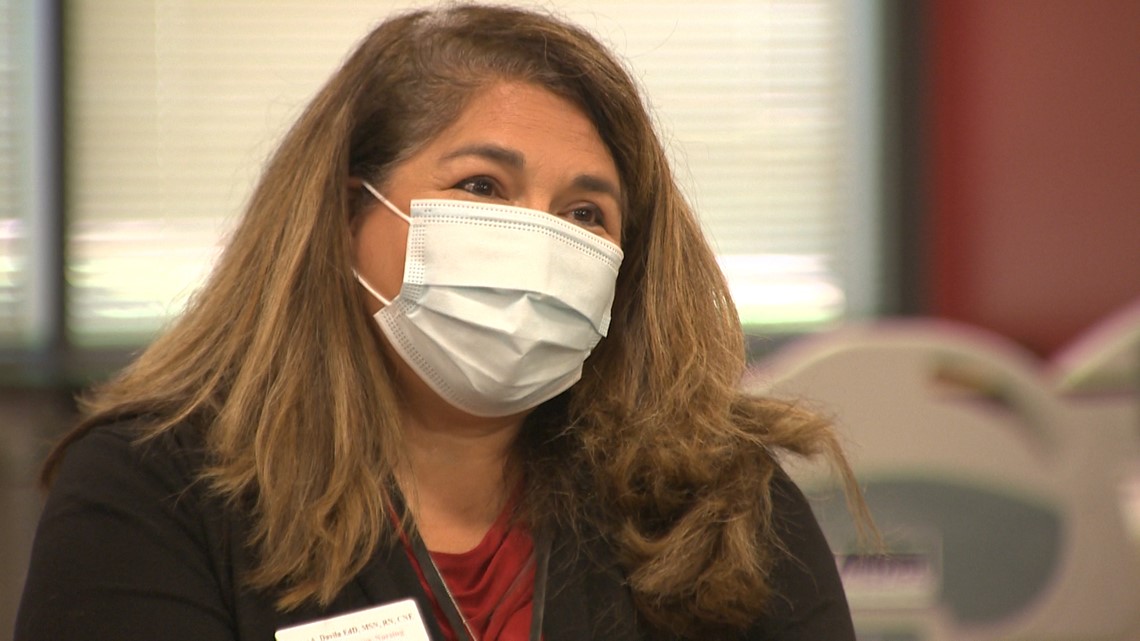
“It is different and with COVID, there are safety measures. There are safety measures here, as well as with the community. We create and we write safety plans so the students know and the community knows what we are doing in the process,” Davila said.
Finding a path "You have the power, you have the knowledge, you are going to do this"
Valadez said her personal experiences not only influenced her decision to get into nursing in the first place, but also her specialization.
“I would really like to be labor and delivery, I would also love to be a lactation consultant," Valadez said. "It really I just spoke to me when I went through that whole experience, just how she was in the fight with me. This is what you want to do, this is what is best for you and your baby in this situation. So that really helped, because she was so kind and so understanding. Like, I felt like somebody was in my corner. You were going to do this, you have the power, you have the knowledge, you were going to do this. So for some, it doesn’t seem like that hard of a track for a new mom again after 10 years. So lactation consultant is where I would like to end up.”

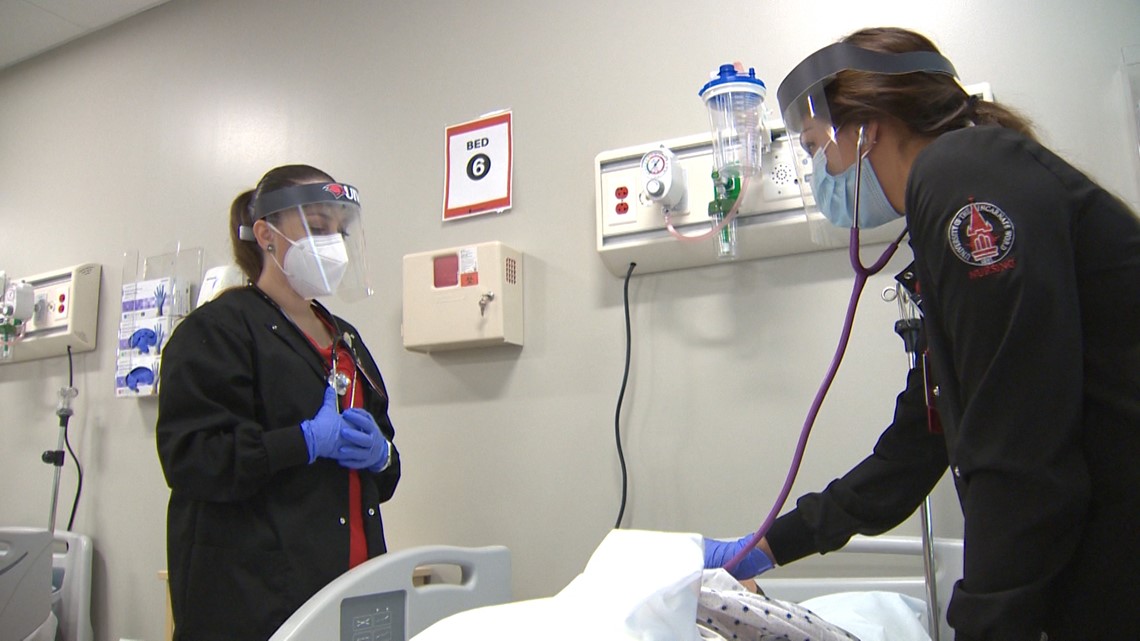
For Davila, the joy of her job is helping students turn that passion into reality and watching them grow and thrive in the field of nursing.
“What excites me the most are the students that come in and what excites me the most is the UIW mission. We embed the UIW Mission within what we do here. But just seeing their eyes at the very first week, you know, they come, their confidence is not very high, but then you see as a weeks go by, their confidence explodes. That’s what I like the best to see...that they’re learning and helping them learn.”
Get involved "Everything is tied to the community through nursing"
We asked Erica what she would tell people if they are looking into the program.
"Like a lot of nursing programs, it's hard, but it’s worth it. I’m only a few weeks in and already everything is tied to community, to nursing, how you are going to help someone. And it’s really the mission of UIW. It's extending the healing missing of Jesus Christ to our community and through educational preparedness of the health professionals. If anybody is really looking into this, are you prepared? They are going to get you through this. What really brought me here was really was the statistics of the school, how they prepare their students to sit the test. Not just not only sit the test, but pass the test," Valadez said. "So it has been a great experience."

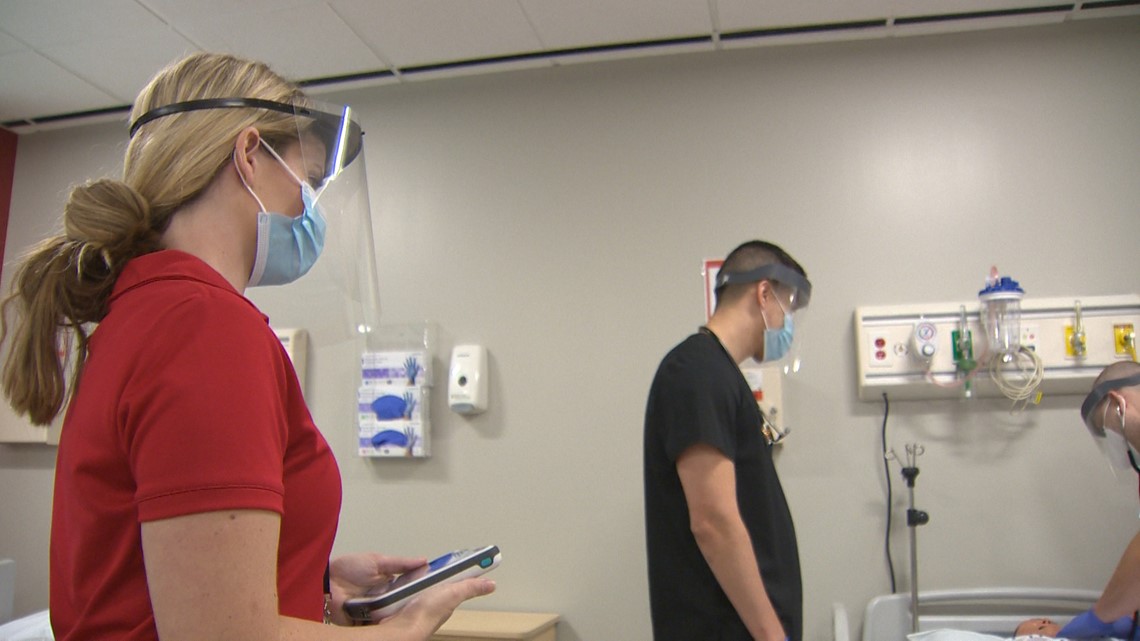
If you would like to learn more about UIW's School of Nursing Accelerated Bachelor of Science in Nursing, please visit this website for more information.
And check out more episodes of Commerce Street, a business podcast from KENS 5 below:

